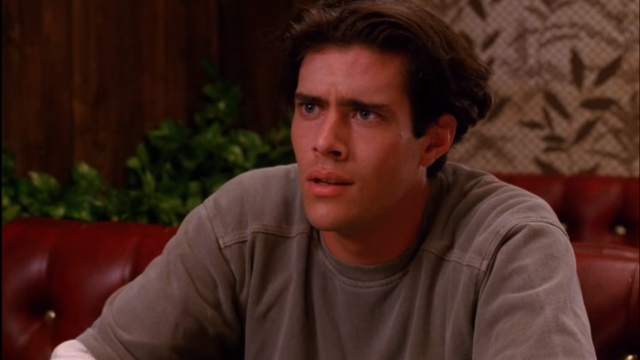In episode one of season two of Twin Peaks, Major Briggs (Don S Davis) sits his son Bobby (Dana Ashbrook) down and shares a vision that he had of the young man that gave him a sense of optimism and hope for his future. Up until now, Bobby has been a stereotypical bad boy – smoking, drinking, involved in the drug trade and petty violence, cheating on his girlfriend, and generally treating his parents with a mixture of aloofness and contempt. When Bobby hears his father’s vision, he’s genuinely shocked and moved to the point of being brought to tears. It was a surprise to hear something so clear, thoughtful, and emotionally honest come out of Major Briggs’s mouth, and it was a surprise to see Bobby respond to it, and it’s spiritually fulfilling to see father and son connect. It becomes even better when you learn the story behind it. David Lynch shot Davis’s side of the conversation first, and played it exactly how we see in the final show. When it came time to shoot Ashbrook’s side, Lynch took Davis aside and spoke to him in private. When they returned, camera pointing at Ashbrook, Davis delivered the same monologue but weeping as he did so, and this provoked the reaction in Ashbrook that we see onscreen. There’s the cliche of criticism in which it’s suggested that the movie about the making of a bad movie would be more interesting than the movie itself, but I do dearly love it when the making of a good story is itself a good story. In this, we can be impressed with Lynch’s wisdom in knowing this was the right way to direct this scene, and we can be impressed with Davis’s ability to weep on command (I can only imagine the dignity and sincerity he brought to something only Lynch, Ashbrook, and the crew would ever see), and we can be delighted and moved by Ashbrook’s emotional honesty. The making of the scene was as much a spiritual experience as the final product.


